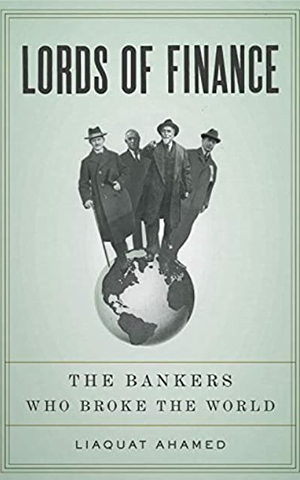
Lords of Finance: The Bankers Who Broke the World
- Book
- 2009
- #History #Economics
<b>With penetrating insights for today, this vital history of the world economic collapse of the late 1920s offers unforgettable portraits of the four men whose personal and profess...
Show More
Number of Pages: 564
ISBN: 159420182X
ISBN-13: 9781594201820
Mentions
See All
Jack Farley @JackFarley96
·
Feb 23, 2022
a fantastic book
Lyn Alden @LynAldenContact
·
Jul 24, 2022
- Answered to What are the best books you’ve read on geopolitics, macroeconomics, and/or financial history?
- From Twitter
Mark Moss @1MarkMoss
·
Jul 24, 2022
- Answered to What are the best books you’ve read on geopolitics, macroeconomics, and/or financial history?
- From Twitter